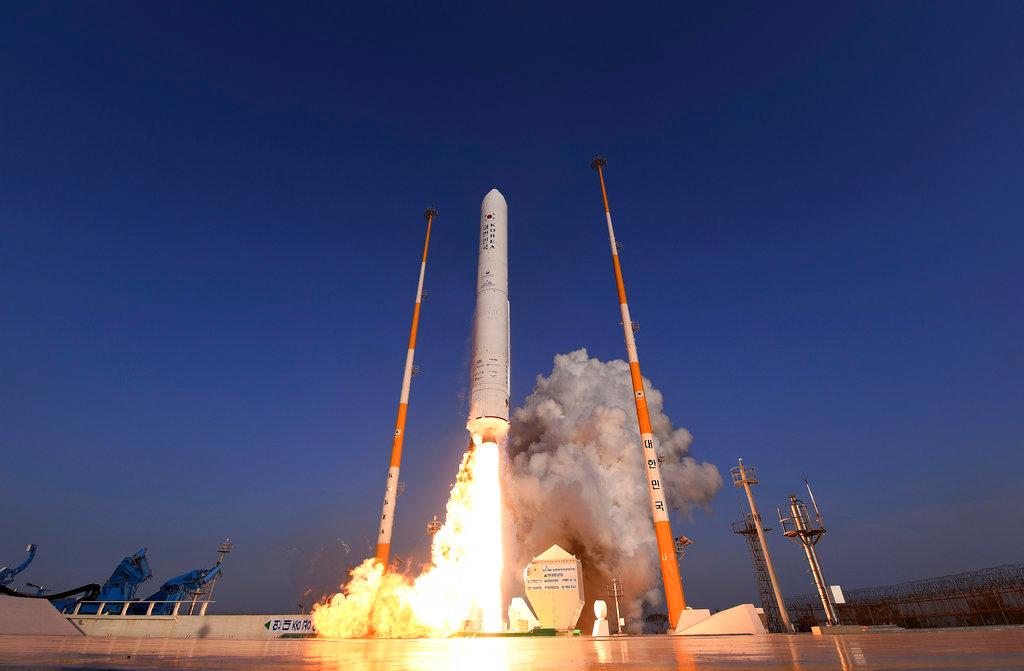South Korea prepares to launch first domestically produced space rocket
The three-stage KSLV-II Nuri rocket emblazoned with South Korea's flag is designed to put 1.5-tonne payloads into orbit 600km to 800km above the Earth.
Just In
South Korea is scheduled to conduct its first test launch into space of a domestically built rocket on Thursday in a major step toward jumpstarting the country’s space programme.
The three-stage KSLV-II Nuri rocket emblazoned with South Korea’s flag stood on its launch pad at the Naro Space Center ahead of its scheduled 4pm (0700 GMT) blast-off carrying a dummy satellite.
The Nuri, or “world”, rocket is designed to put 1.5-tonne payloads into orbit 600km to 800km above the Earth. South Korea’s future plans call for launching surveillance, navigation, and communications satellites, and even lunar probes.
Overseen by the Korea Aerospace Research Institute (Kari), the 200-tonne rocket was moved to its launch pad on Wednesday and raised into position.
“All preparations like umbilical connection and confidential inspection have been done,” the Ministry of Science and Technology said in a statement.
Space launches have long been a sensitive issue on the Korean peninsula, where North Korea faces sanctions over its nuclear-armed ballistic missile programme.
South Korea’s plans call for launching a range of military satellites in the future, but officials deny that the Nuri has any use as a weapon itself.
The country’s last such rocket, launched in 2013 after multiple delays and several failed tests, was jointly developed with Russia.
Having its own launch vehicle will give South Korea the flexibility to determine payload types and launch schedules, as well as protect “confidential” payloads such as spy satellites, officials told Reuters.
Subscribe to our newsletter
To be updated with all the latest news and analyses daily.
